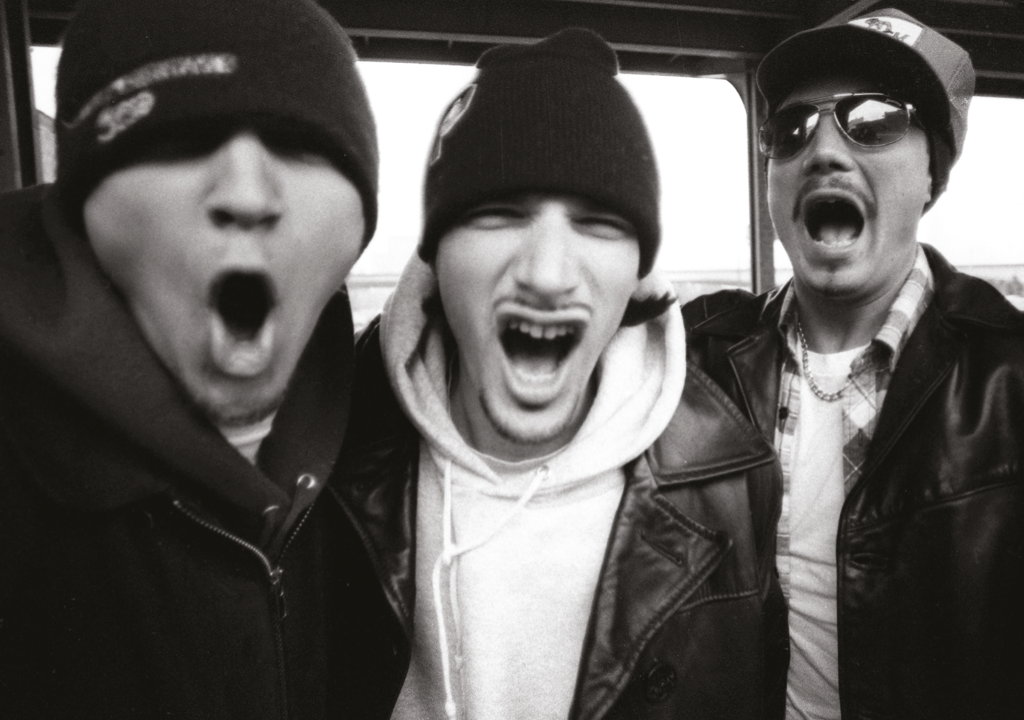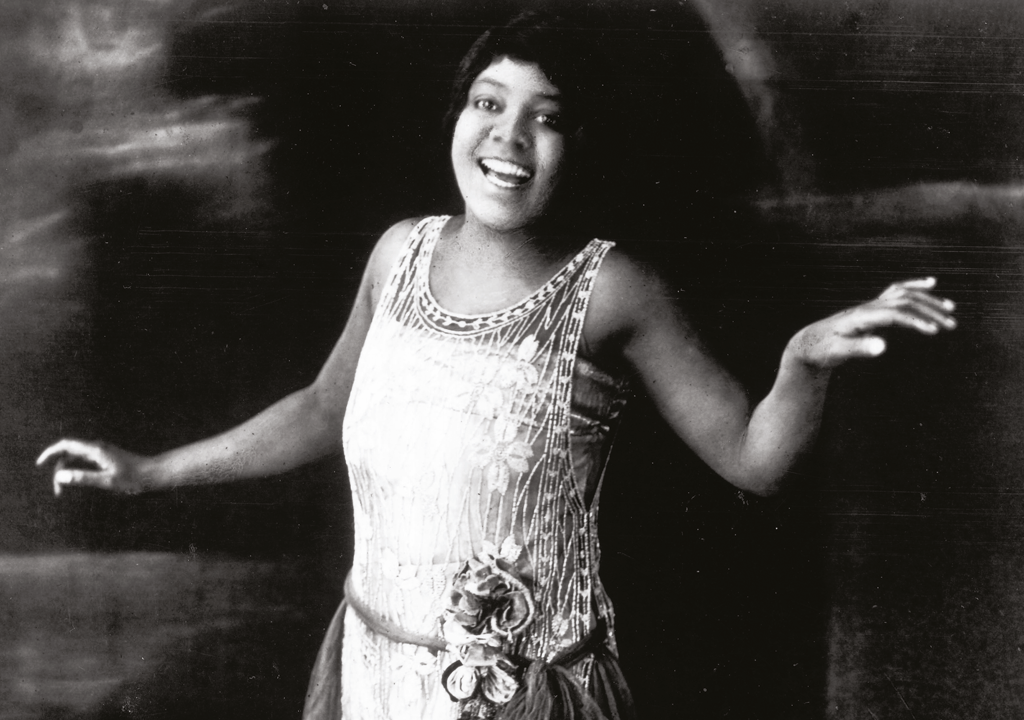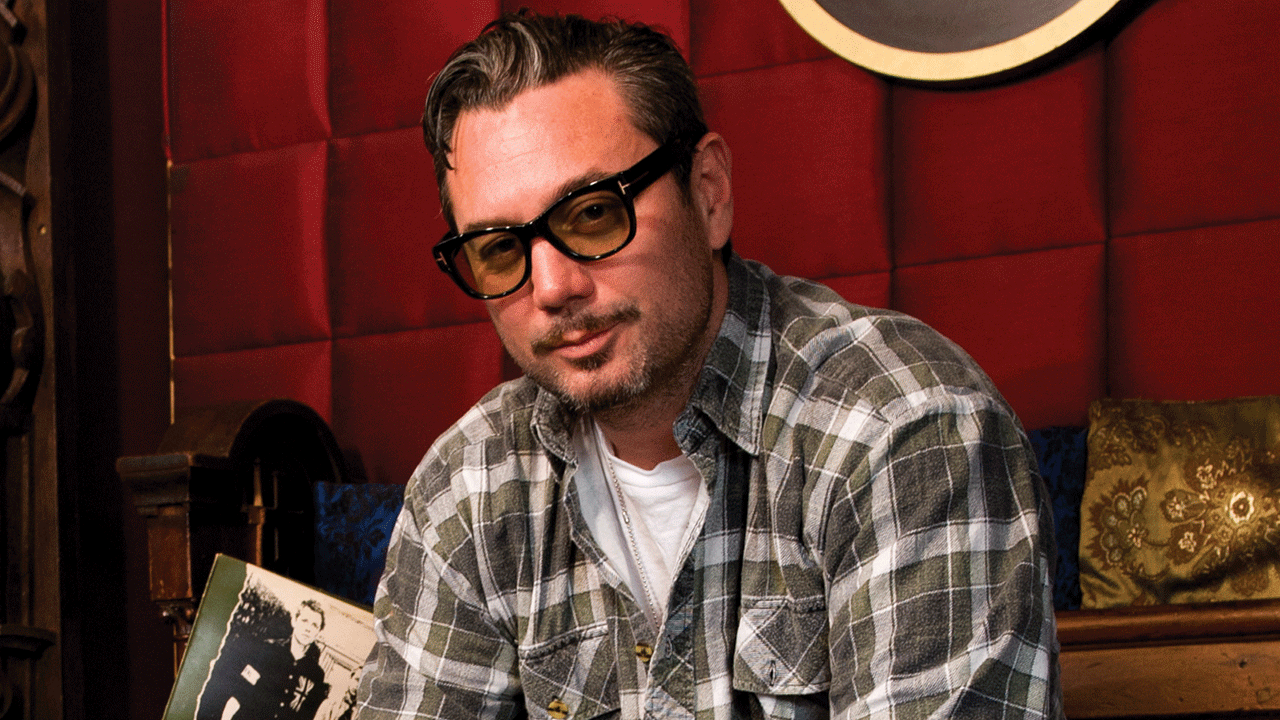A friend of mine went to see Albert King play one time when he was very young. Afterwards this seven-year-old kid gets backstage, goes up to Albert King and says, “Mr King, what kind of tuning were you playing with?” He said: “Albert King tune, son.”
I was interested in blues guitar early on, but my idea of it as a 12-year-old was listening to mind-bending Jimi Hendrix and Led Zeppelin and trying to figure out pentatonic scales. Then my friend played me a live recording of Albert King at the Fillmore East on New Year’s Eve 1969, when he opened for Hendrix. I was blown away. The emotion was so undiluted, it was right there. You hear King after the first song, bewildered, saying thank you as all these white kids go crackers. He was playing left-handed like Jimi did but he had it strung for a rightie, so he’s bending down all his high notes. That guy solidified my love for the blues and it just expanded.
In the 1970s and 80s, growing up in New York City, I was spoilt for choice. BB King, God rest his soul, had his club on West 42nd Street; you name it they played there. I also saw James Brown and Son House at the Lone Star Cafe. It was great to see those guys coming full circle, from having nothing to influencing everything.
Later on I remember Keith Richards telling me that, if you look at the blues on sheet music, it doesn’t look much cos it’s all improv, it’s all feeling. The blues is a good person feeling bad.
When you meet a guitar player from a generation before you, they want someone to take the flame and move it on to the next generation. They know they’re not gonna live forever, they’ve been through the mill and back and seen every bad side of the music business there is. When they see someone who really is a student of the blues and wants to learn it, they’re really encouraging.

I found that with BB King when I met him at the Jools Holland show. He called me over and he just handed me Lucille and took my guitar. So I’m holding Lucille, like flat out trying not to drop it and he said, ‘Son, hold it like a woman.’ So he starts playing my guitar and says ‘What is this?’ and I say ‘It’s the blues, Mr King.’
He says, ‘No, what kind of guitar is it?’ It’s a Chet Atkins. ‘I know Chet Atkins, sit around and watch, man.’ So I’m kind of in shock as well. He says, ‘I really like what you did on that last number, that was blues.’ It was a song called Up On The Hill. It was really cool to have someone like him be encouraging.
The blues pretty much influences everything I do, no matter what song the Fun Lovin’ Criminals play, or if I’m playing with Pee Wee Ellis, nine times out of 10 what I do is blues-based, because that’s where I come from. It might not be overtly there but you just have to look for it, or rather listen for it.
ROBERT JOHNSON
King Of The Delta Blues Singers (Columbia, 1961)
The one and only. It’s the cornerstone for me as far as blues guitar is concerned. And as a singer he communicated an emotion in a way that few others could. It’s haunting and veiled in secrecy and mystery. You listen to this, then Led Zeppelin’s Houses Of The Holy, then a young band like Kill It Kid, you could definitely draw a line a foot wide. And if you can communicate the basics, which is feeling bad or good, that’s the blues. The blues is people music.
BESSIE SMITH
Mother Of The Blues (Various Recordings)
Bessie Smith was around at the same time as Ma Rainey [see below]. Coming out of the Great Depression and getting into World War 2, there was a lot of crazy shit going on down south and these women would sing about it with a parlance that would go right over the white person’s head but the black audience would understand where they were coming from. When it comes down to that kind of stuff the women were so important. I cite Ma Rainey and Bessie Smith very heavily in my book Rebel Heroes because I grew up listening to them.

MA RAINEY
Countin’ The Blues (Recorded 1924, released on compilation 2007)
This lady was known as the mother of the blues. It has all the stuff that blues is really about, such as Moonshine Blues talking about whiskey. Those Dogs Of Mine is a great track and it has her take on ‘these men that be around’. So does Lawd Send Me A Man, which is about loneliness. She addresses all the things blues players did but from a female perspective. She talks about South Bound Blues, going down to Louisiana, Memphis Bound Blues. It’s about her direct experience. That was what attached me to her, she was singing about stuff that actually happened to her.
BB KING
Lucille (BluesWay, 1968)
If you listen to Eric Clapton, they called him Slowhand, he did a lot of great things in his career and he still does. Then you look at BB King and how long his career lasted and all the places he went, the people he touched. You know what, I bet he played half the notes Eric Clapton did, but with as much feeling! I’m not taking it away from Clapton. As he said, BB King is the man. I also like Live At The Regal. I like live recordings because they show the humanity in these great players, the way they address the crowd. They have respect for the people, they’re modest. There’s no preconceived long-term goals, they just wanna do what they gotta do, they gotta get it out.
SON HOUSE
Father Of Folk Blues (Columbia, 1965)
One of my favourites of all time. It’s completely amazing. It states the obvious what blues is about, everyday people doing everyday things and how they get through their lives. It starts with Death Letter but you also have a song called Grinnin’ In Your Face. He was a happy guy but he always had that glimmer in his eye, like ‘Don’t mess with me dude’. There was a resurgence of folk in the mid-60s, when the Newport Jazz Festival put blues players on. That pushed me towards that kind of music because it was so authentic.
GARY CLARK JR
Blak And Blu (Warner Bros, 2012)
If people are looking for a guy who’s going to be the next great blues guitar player, Gary Clark Jr should be at the top of their list, because he’s something amazing. It’s not all overtly blues, he talks about different things on his record that are very current and very of his time and that’s what’s important. If you catch what’s going on in your time and still be alive to play it for people, that’s very rare. It’ll bend your mind a little bit, you’ll hear some great stuff on it that you definitely notice is blues music and then you’ll hear stuff that’s great as well but you’ll have to think a little bit for it. He had the job that Stevie Ray Vaughan had down at Antoine’s, so he learned how to not play all the time, as you choose your words to express your feelings. He has been through a lot in his young years and you can tell that by his music. I’m always hopeful when I hear players like Gary Clark Jr.
Huey Morgan’s Rebel Heroes by Huey Morgan is available now. Go to www.FunLovinCriminals.co for info.

